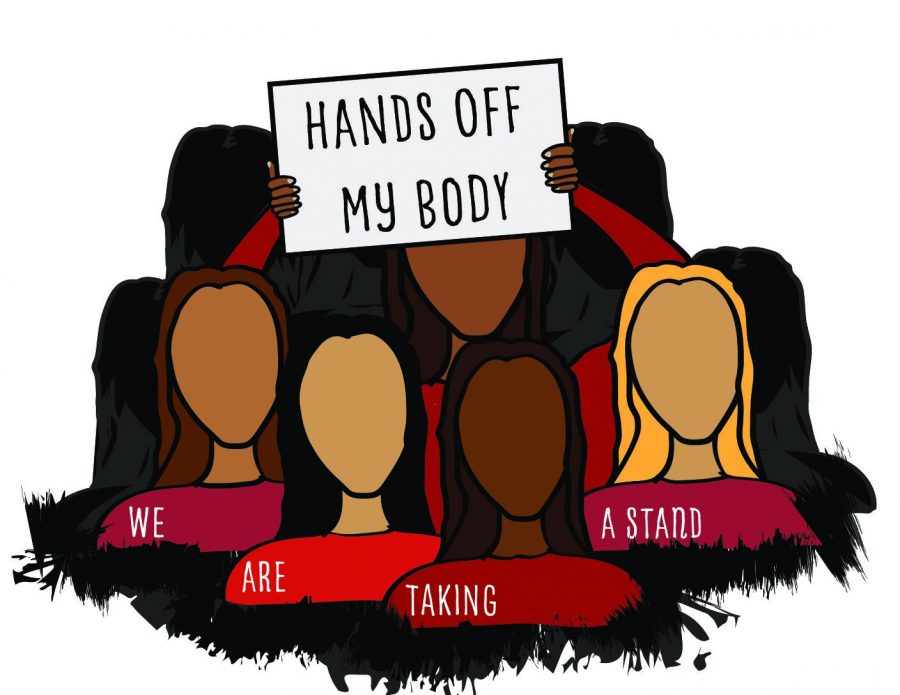Opinion—Heartbeat Bill violates rights of Texas women
September 17, 2021
On Sept. 1, 2021, the state of Texas passed into law the Heartbeat Bill, which effectively bans abortions after six weeks of pregnancy. Usually, such a bill wouldn’t pass due to it restricting a woman’s right to an abortion, but the wording in the bill is tricky. Rather than the state enforcing the law, it’s enforced by private persons who can sue anyone involved in the abortion except the woman. Meaning, a private citizen can sue a doctor for knowingly performing an abortion.
While the word ‘Heartbeat’ brings up emotional connotations, the Heartbeat Bill is essentially a statewide ban on abortion. The due date of a child is calculated from the date of the mother’s missed period, meaning an embryo at six weeks gestation is only about four weeks old. Most people don’t realize they are pregnant until after they have missed a period, two weeks after conception.
The Heartbeat Bill’s stated purpose, according to the bill itself, to “[protect] the health of the woman and the life of an unborn child who may be born; and to make an informed choice about whether to continue her pregnancy, the pregnant woman has a legitimate interest in knowing the likelihood of the unborn child surviving to full-term birth based on the presence of cardiac activity.”
What’s strange about the law is that it dictates that an abortion cannot be done once a heartbeat is detected, although the first ultrasound of a woman’s pregnancy is typically done around 11 to 14 weeks. Plus, instead of the traditional ultrasound that involves a wand against a belly, the fetus before 6 weeks is so small that the doctor has to insert a wand into the vagina in order to detect anything. The Heartbeat Bill is not only disregarding traditional medical practices, it’s making a difficult decision for women even more invasive and traumatic.
Getting an abortion is a deeply personal choice for a woman—and it’s also a form of healthcare. There are many things that can necessitate a woman’s need for an abortion: contraceptive failure, rape, incest, intimate crime violence, sickness for the duration of the pregnancy or health conditions so severe that the only option to save the mother’s life is to terminate the pregnancy.
According to the American College of Obstetricians and Gynecologists, “Where abortion is illegal or highly restricted, women resort to unsafe means to end unwanted pregnancies, including self-inflicted abdominal and bodily trauma, ingestion of dangerous chemicals, self-medication with a variety of drugs, and reliance on unqualified abortion providers.”
In other words, eliminating a women’s legal access to abortion only terminates a woman’s access to a safe abortion. The law is a blatant attempt by lawmakers to control women’s bodies. Abortion is a medical procedure, and the person choosing to terminate the pregnancy—for whatever reason—is a patient protected by medical privacy laws. Limiting a person’s access to healthcare is unconstitutional.
The arguments against abortion are largely for religious and personal reasons. No matter what side of the abortion issue you stand on, any abortion is a sad and terrible thing. But it is the parent’s decision, and nobody else’s. Nobody, whether it be lawmakers, politicians, friends or family members, should be able to take away the ability of the person to make that decision.




























